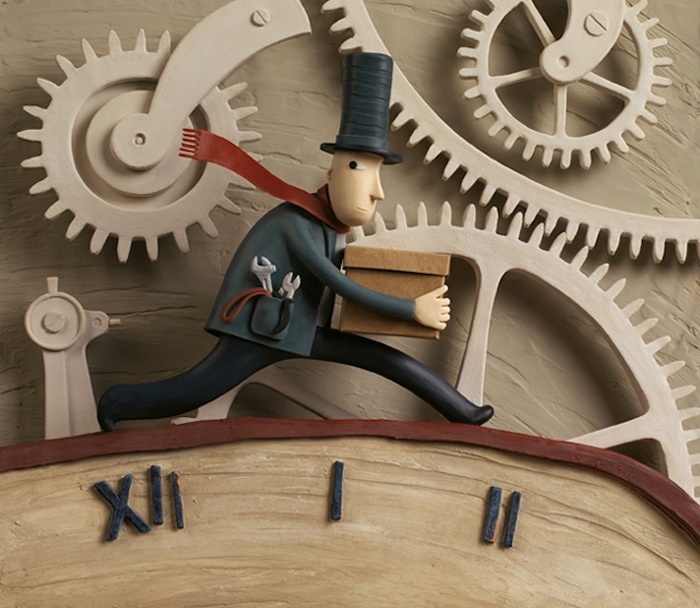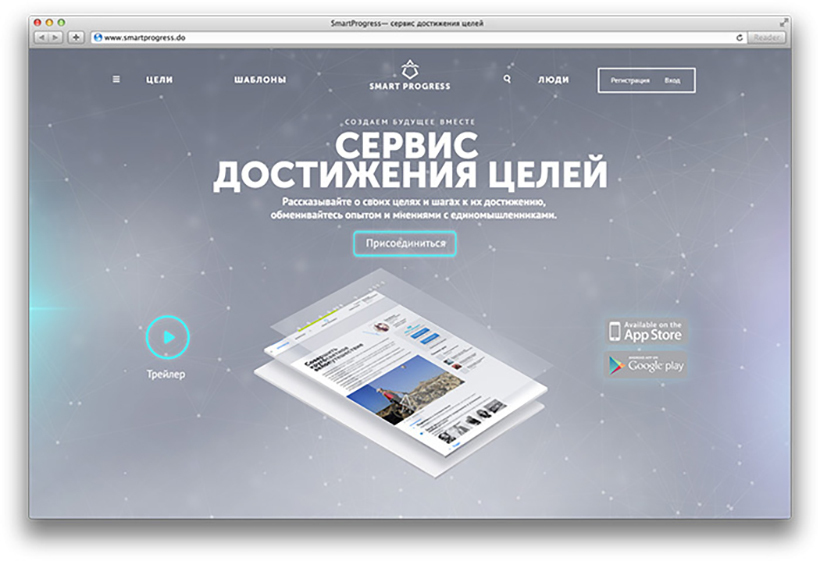Sentry, rob

I want to work without being distracted. But why is there some kind of sticky infection that will steal such precious minutes (or even hours) of work from me? How to focus on your lesson?
If you work remotely, then you have a certain advantage over office workers: there are no colleagues who have come to “chat”, the boss, who calls to himself over trifles. But again, offices are different, and if all your workaholics who prefer to work in silence are gathered in yours, then the whole situation whispers to you: “Work, do not be distracted.”
But sometimes it’s harder to fight not with your colleagues, but with yourself. I will offer you different ways to concentrate on work, and you choose the most useful ones in your particular situation.
Love what you do
')
If you give a case with all the fervor, then the question "how not to be distracted" may not be relevant at all. For example, when I read an interesting book, I generally fall out of reality. Therefore, try to make each project as useful as possible or at least pleasant for you: choose your favorite topic, imagine how you will tell your colleagues about the new features that you will implement during the project.
Personal experience: if I am passionate about work, then motivation in itself becomes a condition of concentration. I wrote this article without a break for more than thirty minutes. Then the brain decided that he gave everything he knew, and asked for a break. I'm not greedy, gave him a rest. He podnaprygsya again. And then I had to motivate myself in the ways that remained in the article.
Plan
And not globally, but locally. Instead of "I will begin to work on the project on the sly," make a plan "Today I will make up the structure of the project and write an explanatory note." Concrete is our everything!
Personal experience: planning increases efficiency. I divide the work into the shortest semantic blocks: check the mailing lists, write the structure of the article, select examples for illustrations, select pictures for the first block, come up with tags. When there is a to-do list before my eyes, even if out of 10 points, this gives clarity to the route.

Limit stimuli
What prevents you from working: Vkontakte, Adme and Sports.ru? Determine the sites to which the finger treacherously stretches and temporarily block them. Well, or if willpower allows, then just limit their use.
If the stimuli can walk, talk or meow, it's harder here :) Try to walk and talk to explain that you are focused, carry away meows to another room and give a ball of yarn.
It is not always easy to explain to colleagues, relatives and friends that you need to work without distracting. What can help:
- a sign on the door or table (Level 1, for modest visitors). Having decided to put a playful sign like “Entrance is paid. The output is obligatory ”, you will only attract more attention and sharpness of homegrown artists. Therefore, it is better to restrict the official "Do not disturb."
- an indication of a clear time for communication (Level 2, for persistent visitors, friends). So visitors will not feel undervalued, offended that they do not want to communicate with them. “Uh, old man, I’d be glad to chat with you, but right now you can’t. Come on today at 3:30 pm GMT at Reindeer Mountain. ”
- inclusion in work (Level 3, for colleagues). Ask a colleague to take on part of your work for free and it will most likely evaporate. “Oh, Natash, listen, I wanted to work on the layout right now. Take it, work it out? Or, if you want, I will give another task, since you are still sitting ”- in most cases the visitor tries to slip away quickly, sometimes even confusing the doorway with the cabinet. If you really show zeal to help - give him a simple task (sort the papers, reprint the material from the book) and ask him to perform in silence.
- Complete disregard (Level 3, for especially arrogant visitors). Put on headphones, do not answer questions or do it in monosyllables, with pauses. You can say straight in the eye: “I need to work, do not distract, please.”
Personal experience:
• I exit the profiles in the social network, additionally clear the cache, turn off the sound notification.
• I put the phone on silent mode, turn the screen down. (Oh, how it saves me!)
• Create rituals. Our brain loves habits. If earlier my work began with a nehily surfing the net, now I try to check only business email, and leave the last 10 minutes of work on the social network or check them with the help of a smartphone.
Find like-minded people
If two out of three people working in the office demand silence for at least a couple of hours, they will be able to achieve more than if they “fight” alone. Support always plays a big role, and like-minded people can help move mountains. Those familiar with the SmartProgress goal achievement service will confirm my words. Working remotely, you can compete with a colleague: you start work at the same time, and whoever gets distracted first, he lost.
Personal experience: it seems to me that when I'm in a team, I work more efficiently. A couple of years ago, a copywriting group rallied to write one huge infobusiness project. I was furious from this movement: “Tom, this task has already been taken away, write about the seventh information product”, “So, who gave up their texts, take new ones and soon, there will be a new volume tomorrow!”, “Masha managed to go ahead, took this passage, write the following! Racing, together, securing each other, we did this project, but I still remember the feeling of cohesion and teamwork.

Get alone
If all else fails, look for a quiet, calm corner, for example, a co-working center or a cafe. Or invite colleagues to enter the mandatory two hours of silence. They will appreciate the usefulness of this time and soon you will work with the whole cabinet.
Personal experience: my privacy is possible only at 5-6 o'clock in the morning or after 22 at night. But at this time I want to sleep) Therefore, here I am not an adviser.
Plan your vacation
It’s easier to work if you know you’ll have rest soon. Therefore, from an hour of work, set yourself 10-15 minutes for a rest break. Well, knowing that only 45 minutes are left, we begin to appreciate the time available.
Personal experience: yes, it is one hundred percent true. It is easier for me to live with specifics and clarity - I worked for 25 minutes (long live the Tomato Method), a five-minute break. At this time, I just look out the window, relax, give the brain to be lazy . Then I work again. Well, then legitimate rest 15 minutes. Though LJ read, at least listen to music.

Conclusion
Without being distracted by social networks and calls, you save your working time. No, I'm not Captain Obvious. It has been scientifically proven that the brain needs more time to return to work after distracting from it.
Distracting for 5 minutes, in fact, you spend 15 minutes for the brain to return to its previous performance. Reread the previous paragraph, tune in to work, re-enter the topic, build all the associations - in my head there is an imperceptible for us, but very important work. By myself, I notice that in an hour of concentrated work, I do much more than two with breaks on social networks, phone calls and coffee breaks.
In general, all good and excellent concentration! If you have your own interesting tricks - share!
Source: https://habr.com/ru/post/299474/
All Articles